
Higher Ed: Private Investors Get Into the Game
The combination of sustained economic growth in Latin America, a region-wide expansion of the middle class, and a newly competitive business environment has boosted demand for quality education, and stoked desires for alternatives. The alternatives are coming from a slew of new and lower-cost online courses. This innovation has produced a wave of private investment … Read more
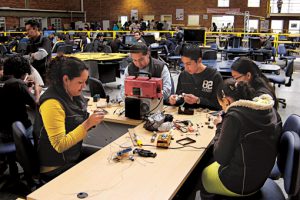
The Pull and Example of Science Education in the United States
I expected high school biology students. Instead, I was facing 120 middle school students who were on an outing to Maloka, an innovative science museum in Bogotá. On the fly, I changed my presentation on how the brain works into a series of demonstrations. At the end, I was awed by the questions: “My mother … Read more
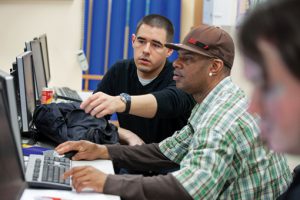
MOOCs in Development: Fad or Future?
Those following tech and continuing education news have been surprised by the rising popularity of Massive Open Online Courses (MOOCs).1 The basic promise for professionals in Latin America and the Caribbean is quite alluring: free online access to a world-class knowledge base. But questions remain. Will this new learning methodology last, or fade quickly once … Read more
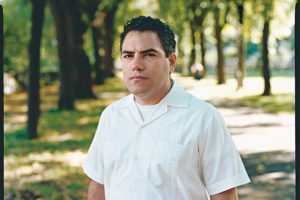
Civic Innovator: Oriol Gutierrez
Oriol Gutierrez first came out when he was a high school senior nearly three decades ago, telling his best friend, but not his family, that he was gay. It wasn’t until 1996 that he finally told his parents and sister the truth. Yet Gutiérrez kept another secret from them for 12 more years: while serving … Read more
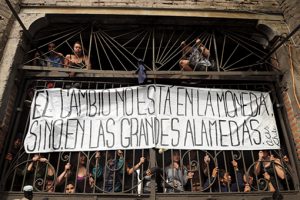
Protest U.
Millions of students have taken to the streets across Latin America in recent years in protests that reflect an unprecedentedly broad mobilization of popular opinion. Following massive demonstrations led by secondary school students in 2006 in Chile, university students launched a series of protests in May 2011. Powered by a coalition of public and private … Read more
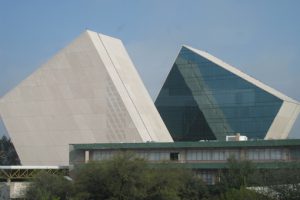
Ask the Experts: Higher Education
Artur Cherbowski Lask answers: It’s important to keep in mind that a region consists of different countries, each with its own needs and strengths, and bound to its particular culture and history—although tied firmly to a common, shared history and culture. In this mosaic, universities try to respond to their regional, national and local demands. … Read more
Indigenous Enrollment
Since its formation in February 1971, the Consejo Regional Indígena del Cauca (Regional Indigenous Council of Cauca—CRIC) has made the education of young Indigenous Colombians one of its most important goals. The dream of creating an autonomous university for Indigenous youth was finally realized in November 2003—when the CRIC’s high council formally created the Universidad … Read more

Behind the Numbers: Women’s Rights
The gender-based data on social inclusion clearly indicate the opportunities and obstacles facing women in Latin America—as well as numerous contradictions and complexities. An examination of new trends, laws and policies brings to mind the Spanish expression, “Del dicho al hecho, hay mucho trecho.” In other words, even in many areas where there appears to … Read more
Behind the Numbers: Insecurity and Marginalization in Central America
With 11 homicides per 100,000 inhabitants in 2012, Nicaragua stands out as a relatively fortunate exception in a region whose homicide rates rank among the world’s highest. Its northern neighbors all recorded rates at least three times greater: with Guatemala at 34.3 murders per 100,000 citizens; El Salvador at 41.5; and—at the top of this … Read more
Solving the Migration Crisis Requires a Shift in Foreign Policy
This Friday, presidents of the Northern Triangle countries of El Salvador, Guatemala and Honduras will meet with President Barack Obama in Washington DC to deal with the crisis of unaccompanied minors arriving in the U.S. from Central America. Migration between these countries is not new, and has been high on the multilateral agenda for … Read more
Short and Long-term Solutions to Migration in Central America
During the past few months, the United States, Mexico and Central American governments have brought attention to the number of unaccompanied minors fleeing towards the U.S. from Honduras, El Salvador, Guatemala, and Mexico. A recent study by the Pew Research Center shows that the number of unaccompanied children ages 12 and younger caught at the … Read more
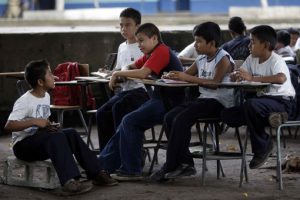
How Guatemala Is Tackling Its Social Issues
One year ago, Americas Quarterly’s 2013 Social Inclusion Index gave Guatemala the lowest total score of all countries evaluated, with a total of 14.8 points out of a possible 100. The index ranked 16 countries, including the United States and 15 countries from Latin America. The comments in the evaluation for Guatemala indicated that “Poverty … Read more
Monday Memo: Argentine debt – Putin in Latin America – Italy investigates Plan Cóndor – Earthquake – Trapped Honduran Miners
This week’s likely top stories: Argentine negotiates with holdout creditors; Russia’s Vladimir Putin will visit Cuba, Argentina and Brazil; Italy investigates dictatorship-era murders; an earthquake hits Mexico and Guatemala; and Honduran authorities search for eight missing miners. Argentina begins debt negotiations: Argentina will begin negotiating a settlement today with its holdout creditors, who are owed … Read more
U.S. Patent Office Rejects Redskins Trademark
In a rare move on Wednesday, the U.S. Patent and Trademark Office cancelled six trademark registrations owned by the Washington Redskins on the grounds that the National Football League (NFL) team’s name is offensive to Native Americans. The office’s independent Trademark Trial and Appeal Board ruled that the term “Redskins” was disparaging to “a substantial … Read more


